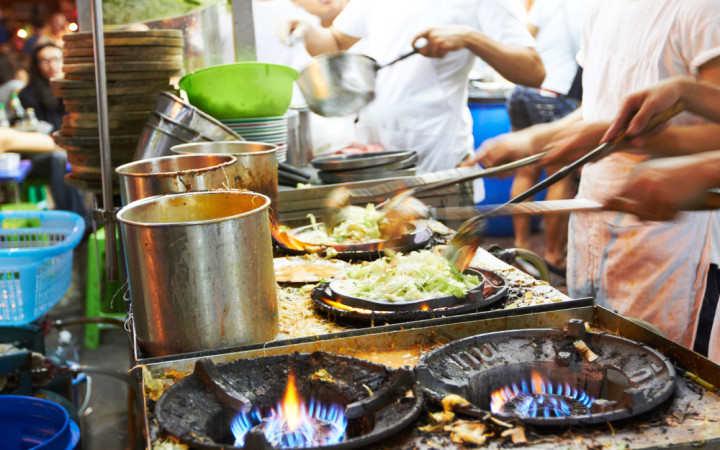Today’s Wonder of the Day was inspired by cristine. cristine Wonders, “Do you need a special talents or abilities to be a good chef?” Thanks for WONDERing with us, cristine!
Do you know your way around the kitchen? We don’t mean whether you can find a bowl and a spoon for cereal. We’re talking about serious pots and pans action. Can you cook up a tasty meal from scratch?
Or would you rather eat at a restaurant where a professional chef does all the work? If so, you may already know that chefs take their work very seriously. They make an art of the planning and preparation of meals.
How do you become a chef? Everyone can cook, right? Well, everyone can feed themselves when necessary. But cooking a gourmet meal takes skill, training, and lots of practice.
For many years, people became chefs through apprenticeship. That means they learned from a person who was already a professional. By working beside a chef for months or years, an apprentice could learn all about planning and preparing meals. Eventually, they would know enough to become a chef and teach others.
Today, you can still be a chef’s apprentice. You can also go to special schools to learn the culinary arts. At culinary school, people learn all about food preparation, care and use of kitchen equipment, and planning.
Being a chef can mean a lot more than just cooking. Head chefs spend much of their time planning menus. They also supervise kitchen staff that does much of the actual food preparation. But of course, not everyone is a head chef. The sous chef is the head chef’s assistant. They are likely to have more direct oversight of kitchen workers. They may also help prepare food daily.
A kitchen can include many other types of chefs. Station chefs are in charge of food preparation. They’re also known as line cooks or chefs de partie. Many restaurants have more than one line cook. Often, they specialize in different food preparation areas.
Depending on the restaurant, there may also be several specialty chefs who focus on different parts of the . These can include sauciers (sauces), poissoniers (fish), and entremetiers (vegetables). Restaurants may also have rotisseurs (roast meats), and pâtissiers (pastries and desserts).
Do you dream of becoming a chef one day? Are there any culinary schools near you? It may be some time before you can start professional training, but you can begin learning today. Ask an adult family member if you can watch or even help them in the kitchen. Cooking and baking are great ways to learn and spend time with family!
Standards: CCRA.L.3, CCRA.L.6, CCRA.R.1, CCRA.R.2, CCRA.R.4, CCRA.R.10, CCRA.SL.1, CCRA.W.2, CCRA.W.4, CCRA.W.9, CCRA.L.1, CCRA.L.2




